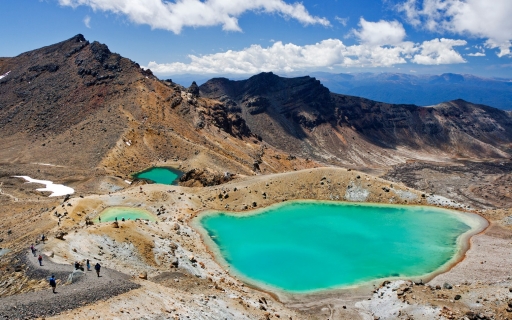Lower Hutt Weather and Climate: A Comprehensive Guide
Temperatures see a moderate degree of fluctuation,
transitioning from pleasant conditions
to mild.
It also has a relatively rainy climate with high levels of precipitation.
Let’s explore the climate details in depth to provide you with a complete overview.
Average maximum day and minimum night temperature
In Lower Hutt, seasonal changes bring about a moderate variation in temperatures. On average, daytime temperatures range from a pleasant 20°C in February to a moderate 13°C in July.
Nighttime temperatures can drop, with average lows reaching 8°C in July. Check out our detailed temperature page for more information.Temperature ranges by month
Precipitation and rainy days
Lower Hutt is known for its substantial rainfall, with annual precipitation reaching 1024 mm. The wettest period in Lower Hutt occurs in June, which receives around 107 mm of precipitation. During the driest month, January, Lower Hutt experiences moderate rainfall, totaling approximately 66 mm. The consistent precipitation levels throughout the year contribute to a relatively stable climate.The mean monthly precipitation over the year, including rain, hail and snow
Sunshine over the year
In Lower Hutt, summer days are longer and more sunny, with daily sunshine hours peaking at 7.8 hours in January. As the darker season arrives, the brightness of the sun becomes less. June sees a soft sun for only 3.5 hours per average day. Visit our detailed sunshine hours page for more information.Monthly hours of sunshine
Daily hours of sunshine
Average water temperature
The mean water temperature over the year ranges from 11°C in August to 16°C in January.
Water temperature over the year
Average humidity
The city experiences its highest humidity in June, reaching 86%. In January, the humidity drops to its lowest level at 79%. What does this mean? Read our detailed page on humidity levels for further details.
Relative humidity over the year
Average wind speed
The average wind speed over the year ranges from 7 m/s to 8 m/s. It is lower in January, February, March, April, May, June, July, August, September and December and higher in October and November.
The mean monthly wind speed over the year (meters per second)
broken clouds and rain partly cloudy and chance of rain partly cloudy and no rainForecast for Lower Hutt
Select a Month of Interest
Check the conditions for any month of the year.
The best time of year to visit Lower Hutt in New Zealand
Other facts from our historical weather data:February has an average maximum temperature of 20°C and is the warmest month of the year.
The coldest month is July with an average maximum temperature of 13°C.
June tops the wettest month list with 107 mm of rainfall.
January is the driest month with 66 mm of precipitation.
January is the sunniest month with an average of 234 hours of sunshine.
No idea where to travel to this year? We have a tool that recommends destinations based on your ideal conditions. Find out where to go with our weather planner.




